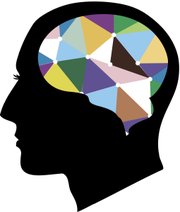Wednesday, June 26, 2013
"I think the root of racism, it's out of vogue and out of style in this country to even use that kind of language, but I believe it and so I say it. You know, I believe that the root of racism is nothing but a very sinful and a very black and dark heart. ... [A]s relationships are formed in communities, as people come to trust each other, as people come to spend time with one another, get to know one another, and that's when the stereotypes are dispelled, that's when people have the opportunity to set aside their preconceived notions, their prejudice, and they get to know each other as individuals."
—Kay James, Dean, Regent University School of Government, 1998
One effective way to begin to understand our racial biases is to examine where they came from. When you're ready to engage in the race conversation, here are some questions to get your juices started.
• What are your first memories of learning that there was something called race?
• Have you ever felt different because of your race? If so, what was your first experience of feeling different?
• How much contact do you have now with people from other races? What type of contact is that?
• What was your first exposure to messages that concern racial stereotypes? Who told you about them?
• When did you first discover that some people thought about race differently than you?
• What experiences have shaped your feelings and attitudes about race and ethnicity?
• What did you believe about race relations in your community growing up?
• What is your family history concerning race? Did racial issues affect your parents and grandparents?
• What early experiences have shaped your feelings and attitudes about race?
SOURCE: U.S. Department of Justice Community Relations Service "Community Dialogue Guide: Conducting a Discussion on Race"
Read More:
Putting a Toe in the Water of the Race Conversation
What Is Racism? Why Meanings Matter in Conversations About Race
Racism Affects Families from Generation to Generation
Crimes Against (Some) Americans
Facts Matter; So Do Stereotypes

